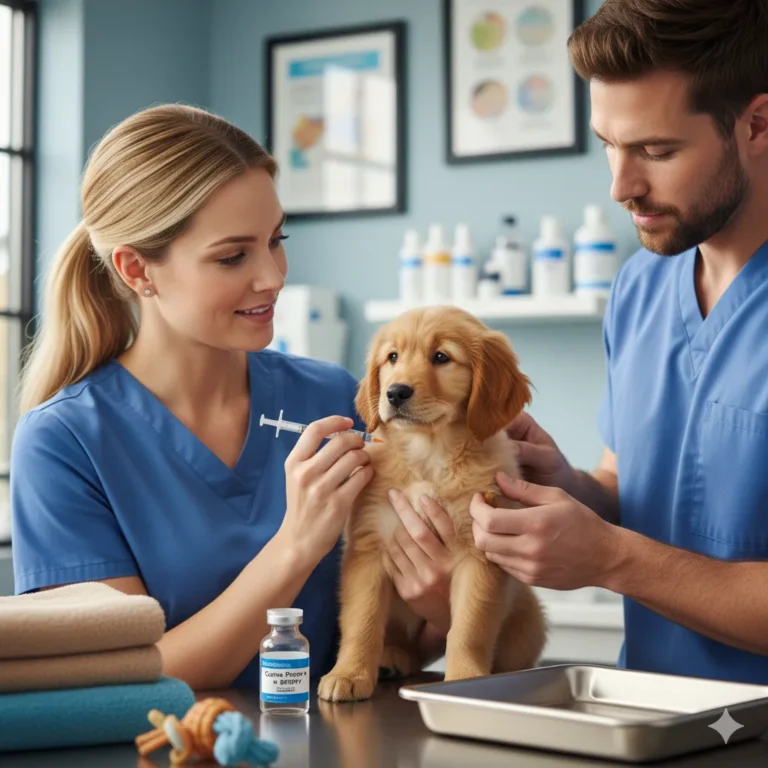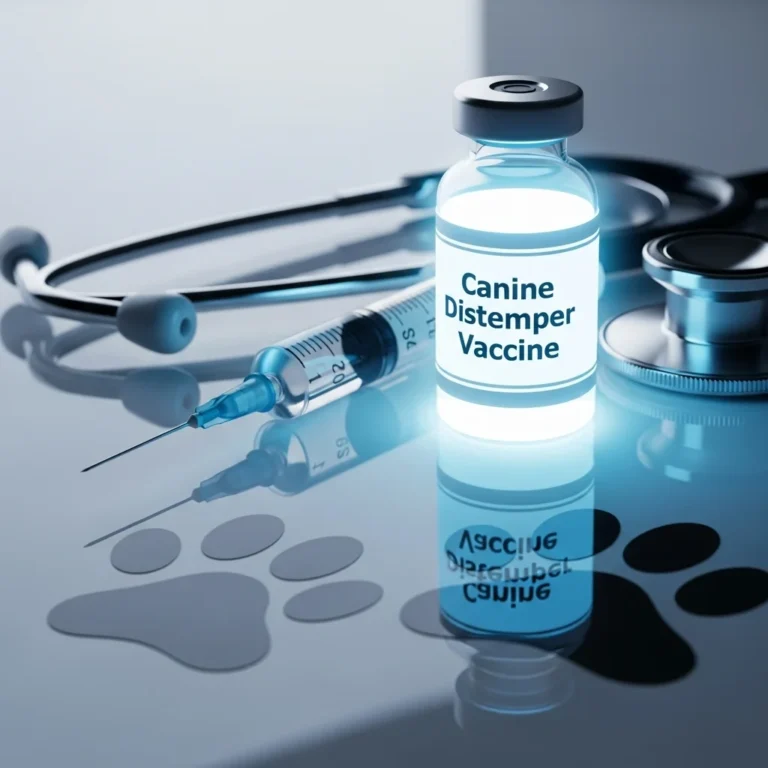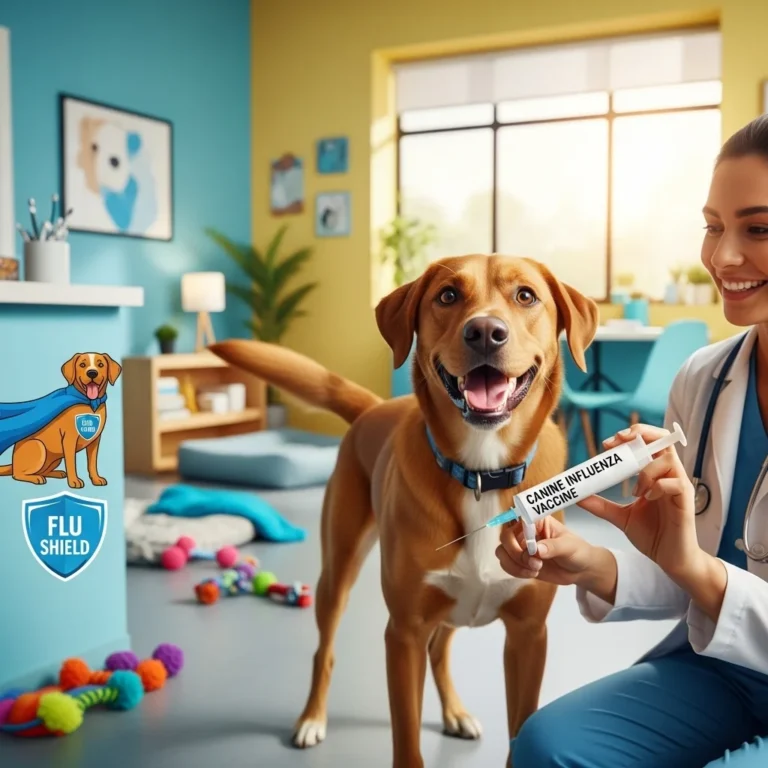
Author: DogsBlogSS Team
⚠️ Disclaimer: This article is for informational purposes only and is not a substitute for consulting a veterinarian.
da2pp vaccine
If you’ve ever taken your dog to the vet for their routine shots, you’ve probably heard the term DA2PP vaccine tossed around. At first glance, it might sound like a complicated string of letters, but it’s actually one of the most important vaccines your dog will ever receive. Think of it as a protective shield against several serious—and often deadly—diseases that commonly threaten dogs of all ages.
Whether you’re a first-time puppy parent, caring for a rescue dog, or simply brushing up on your dog’s health routine, understanding the da2pp dog vaccine helps you make confident, informed decisions. In this guide, we’ll break everything down in a friendly, engaging way that feels like chatting with someone who genuinely cares about your dog’s well-being.
We’ll walk through what the da2pp vaccine for dogs vaccine is, why it matters, the recommended vaccination schedule, potential side effects, costs, and what to expect after your dog receives it. Along the way, we’ll reference trusted experts and organizations, including the American Veterinary Medical Association (AVMA), AKC veterinarians, and board-certified veterinary specialists, each of whom actively support the essential role of this vaccine in canine health.
The Basics: What is the DA2PP Vaccine?
What Does DA2PP Stand For?
The DA2PP vaccine is a core canine vaccine, meaning every dog—regardless of breed, size, or lifestyle—needs it. The acronym represents four major viral diseases:
- D – Canine Distemper Virus
- A2 – Canine Adenovirus Type 2 (protects against hepatitis caused by Adenovirus-1)
- P – Parvovirus
- P – Parainfluenza
Each of these viruses can be life-threatening, especially for puppies and unvaccinated dogs. The DA2PP vaccine works by helping your dog’s immune system recognize and fight these viruses before they cause severe illness.
(Source: American Animal Hospital Association)
Is DA2PP a Core Vaccine?
Yes. The American Animal Hospital Association (AAHA) and the American Veterinary Medical Association (AVMA) both list DA2PP as a core vaccine, meaning it is essential for all dogs in the United States and internationally.
AAHA’s Canine Vaccination Guidelines describe DA2PP as “critical for preventing viral diseases with high mortality rates.”
(Source: American Animal Hospital Association)
What Is the Difference Between DA2PP, DHPP, and DAPP?
Many dog owners find these acronyms confusing, but here’s a simple explanation:
| Vaccine Name | Contains the Same Core Viruses? | Notes |
|---|---|---|
| DA2PP | Yes | Includes Adenovirus-2 |
| DHPP | Yes | “H” stands for Hepatitis (Adenovirus-1) |
| DAPP | Yes | Just a stylistic change |
Veterinarians often use these terms interchangeably because the differences are minor. All three cover Distemper, Adenovirus, Parvo, and Parainfluenza.
Disease Coverage: Why Does My Dog Need It?
What Diseases Does the DA2PP Vaccine Prevent?
Here’s a deeper look at each disease the vaccine protects against:
Canine Distemper
A highly contagious virus that affects the respiratory, gastrointestinal, and nervous systems.
Symptoms: fever, coughing, nasal discharge, seizures.
Often fatal, especially in puppies.
(Source: aarcs , petmd , Hollymead Veterinary Hospital )
Adenovirus-2 (and protection for Adenovirus-1)
Adenovirus-1 causes infectious canine hepatitis, which can result in liver failure and internal bleeding. Adenovirus-2 protects against both.
Parvovirus
Commonly known as Parvo, it strikes puppies hard.
Symptoms: severe vomiting, bloody diarrhea, dehydration.
Without immediate veterinary care, it can be fatal.
Every veterinarian agrees: Parvo is a preventable tragedy.
(Source:aarcs , petmd , Hollymead Veterinary Hospital )
Parainfluenza
A major contributor to kennel cough.
While not as deadly as Parvo or Distemper, it spreads easily in parks, grooming salons, and boarding facilities.
(Source: aarcs, petmd , Hollymead Veterinary Hospital )
Does the DA2PP Vaccine Cover Rabies or Leptospirosis?
No. DA2PP does not include Rabies or Leptospirosis.
- Rabies is always given as a separate vaccine because it is legally required in most places.
- Leptospirosis (Lepto) may be added to DA2PP, creating DA2PP+L, but not all dogs receive this unless they are at risk.
(Source: aarcs , petmd , Hollymead Veterinary Hospital )
Vaccination Schedule: When to Vaccinate?
What Is the Recommended DA2PP Schedule for Puppies?
Puppies need a series of DA2PP vaccines because maternal antibodies can block early immunity. To ensure full protection, veterinarians follow a carefully designed schedule.
Here’s the typical puppy vaccination timeline recommended by AAHA and most veterinarians:
- 6–8 weeks old: First DA2PP shot
- 9–11 weeks old: Second shot
- 12–14 weeks old: Third shot
- 15–17 weeks old: Fourth shot (crucial for Parvo protection)
(Source: American Kennel Club, American Veterinary Medical Association, American Animal Hospital Association )
How Often Do Adult Dogs Need the DA2PP Booster?
Adult dogs receive DA2PP boosters less frequently:
- 1 year after the puppy series, then
- every 3 years (as recommended by AAHA)
Some vets still offer annual boosters based on lifestyle risks or kennel requirements.
(Source: American Kennel Club, American Veterinary Medical Association, American Animal Hospital Association)
What Should I Do if My Dog Misses a Dose of DA2PP?
If your dog is overdue, the solution is usually simple:
- Puppies may need to restart the series depending on how late they are.
- Adults typically need a booster and resume the normal schedule afterward.
Always consult your vet—they may adjust the plan based on your dog’s age and health.
(Source: American Kennel Club, American Veterinary Medical Association, American Animal Hospital Association )
Safety & Side Effects: What to Expect
What Are the Common Side Effects of the DA2PP Vaccine?
Most dogs experience mild, short-lived effects, such as:
- Sleepiness
- Soreness at the injection site
- Slight fever
- Reduced appetite for 12–24 hours
These reactions are normal and typically resolve on their own.
According to Dr. Adam Christman, DVM, chief veterinary officer at Fetch, “Mild post-vaccine fatigue is your dog’s immune system doing its job.”
(Source: petmd , American Animal Hospital Association, Echo Park Veterinary Hospital )
When Should I Worry About a Vaccine Reaction?
Call your veterinarian immediately if you notice:
- Facial swelling
- Hives
- Persistent vomiting
- Difficulty breathing
- Collapse
- Extreme lethargy lasting more than 48 hours
These may indicate an allergic reaction. Fortunately, severe reactions are rare.
(Source: petmd , American Animal Hospital Association, Echo Park Veterinary Hospital )
Is It Normal for My Dog to Have a Lump at the Injection Site?
A small, firm lump may appear under the skin where the shot was given. This usually goes away within a week or two.
If the lump grows, becomes painful, or lasts longer than a month, schedule a vet visit.
(Source: petmd , American Animal Hospital Association, Echo Park Veterinary Hospital )
Efficacy & Lifestyle: After the Shot
How Long Does It Take for the DA2PP Vaccine to Be Effective?
Immunity begins developing within a few days, but full protection takes about:
- Puppies: after completing the final booster at 16 weeks
- Adults: 1–2 weeks after a booster
(Source:National Institutes of Health, National Institutes of Health )
When Is It Safe to Take My Puppy Outside After Vaccination?
Puppies can socialize safely:
- In controlled environments (friends’ vaccinated dogs, puppy classes): after the 2nd DA2PP shot
- In public places like parks: after the final DA2PP booster at ≥16 weeks
This is crucial because Parvo exists in soil, sidewalks, and even on shoes.
(Source: National Institutes of Health, National Institutes of Health )
Can a Vaccinated Dog Still Get Parvo or Distemper?
Rarely—but yes, it can happen due to:
- Maternal antibodies interfering with early shots
- Incomplete vaccine series
- Severe immune disorders
- Exposure to extremely high viral load
- Poorly stored or improperly handled vaccines (common in DIY attempts)
This is why completing the puppy series and using a licensed veterinarian is so important.
(Source: National Institutes of Health, National Institutes of Health )
Cost & Accessibility
How Much Does the DA2PP Vaccine Typically Cost?
Prices vary depending on where you live, but here’s a general range:
- Veterinary clinic: $25–$50 per dose
- Low-cost vaccine clinics: $10–$25
- Puppy vaccine packages: $85–$150 for the full series
AAHA and AVMA both encourage regular vaccination as the most cost-effective way to prevent expensive emergency treatment.
Can I Administer the DA2PP Vaccine to My Dog at Home?
Technically, yes—some farm stores sell DIY vaccines.
But veterinarians strongly advise against it.
Here’s why:
- Vaccines must be stored at precise temperatures.
- Incorrect administration can make the shot ineffective.
- You won’t receive a valid vaccination record (important for grooming, boarding, training).
- Misuse increases the risk of infection or abscess.
Dr. Marty Becker, DVM, founder of Fear Free Pets, states:
“DIY vaccination is one of the most common reasons we see Parvo in puppies who were thought to be protected.”
For your dog’s safety, DA2PP is best administered by a licensed veterinarian.
Conclusion
The da2pp vaccine dogs is one of the most effective and essential tools we have for keeping dogs healthy. It protects against deadly diseases like Parvo, Distemper, and Hepatitis—illnesses that were once common threats before widespread vaccination.
By following the recommended schedule, watching for normal side effects, and maintaining regular vet visits, you’re not just protecting your dog—you’re giving them the best chance at a long, joyful life.
Vaccines may feel routine, but their impact is enormous. A few quick visits to the vet can save your dog from diseases that no pet owner ever wants to face.
I hope this article has answered the question: what is da2pp vaccine?
Notice : The DogsBlogSS editorial team is dedicated to providing accurate, research-based information about dog health, behavior, and care. All our articles are fact-checked using trusted veterinary sources such as VCA Hospitals, Merck Vet Manual, and the AKC.
you may like it





